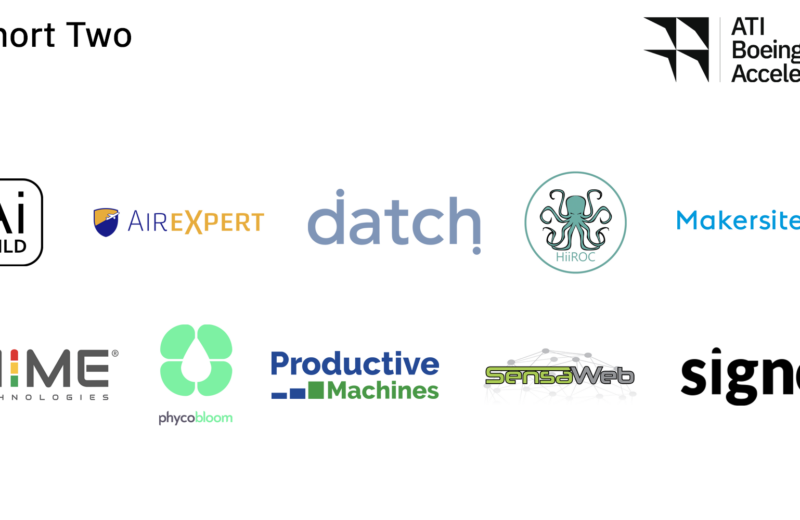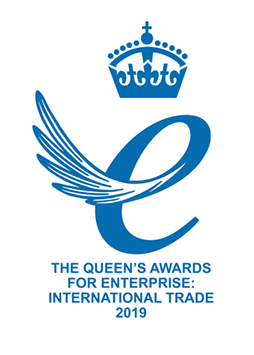ATI Boeing Accelerator’s second cohort includes 10 start-ups

exc-600ec8b0d10b572a0fc9d8b6
The ATI Boeing Accelerator has announced its second cohort of start-ups. The 10 companies were selected from nearly 200 applications from more than 40 countries. The theme for this iteration is sustainability in aerospace innovation.
The second cohort includes companies focussing on energy, software support, inflight medical emergencies and behavioural science technologies to reduce airlines’ greenhouse gas emissions.
The three-month programme is sponsored by Boeing, GKN Aerospace and Rolls-Royce with the objective to support innovation at an early stage. Start-ups benefit from a possible £100,000 equity investment from Boeing HorizonX Global Ventures through the programme.
Gabriela Matic, programme director of ATI Boeing Accelerator, told Revolution.Aero: “The focus is the access to those corporates and getting some projects going. We set goals for the programme with each company individually, in the first week. When it gets to sponsor relationships, we expect them to have senior or founding members there to lead those conversations.
“Ideally, you have the best chance if you have a little bit of traction. For example, if it [the technology] has been tested in one way or the other. However, we have some companies before that stage and that’s also important because sometimes you have to bet on innovation quite early on to seize the rewards.”
Collectively the cohort has already raised nearly £13m ($17.8m) to date, with 20% at the pre-seed stage (grant-funded), 40% at the seed stage and 30% beyond the seed stage.
Brian Schettler, Boeing HorizonX Global Ventures, senior MD, commented: “We’re thrilled to be leading this programme again with ATI, especially given the focus on sustainability. I’m confident that we will again work together with these start-ups and programme partners to address our industry’s most critical issues.”
First cohort: Industry 4.0
The first cohort was focused on automation of traditional manufacturing and industrial practices, also known as Industry 4.0. It has raised over £8m ($11m), created more than 60 jobs and received £1.2m ($1.6m) in grant funding in the final quarter of 2020. They have gone on to partner with businesses including Rolls-Royce and Chevron Technology Ventures.
Intellegens, one of the companies which was part of the first cohort to join the programme, has announced it is leading a new project in partnership with Boeing and the University of Sheffield in northern Britain. It is applying machine learning technology to make the additive manufacturing (AM) process of metallic alloys for aerospace cheaper and faster, to support net-zero targets for aviation.
From the first cohort, data-driven process automation software Authentise is also working on some projects with Boeing, while AI and machine learning company Plyable is working with GKN Aerospace, said Matic.
“Like everyone, we’ve had to adapt our ways of working due to the pandemic and we noticed an increase in the number of companies applying from outside the UK as virtual programming becomes more common due to restricted travel. This period in time also presents a great opportunity for start-ups, and for our partners in the aerospace, to work together and solve industry problems,” said Matic.
She believes future cohorts might reflect themes similar to sustainability.
Next, the start-ups will present their ideas to various corporate tie-ups through the programme. Mentoring is available from a global network of experienced entrepreneurs, mentors and investors and introductions will be made to the programme’s network of angel investors, venture capital firms and the wider aerospace industry. There will be a ‘demo day’ in March.
The 10 startups joining the programme in January include:
1. Ai Build (London, UK): Has developed an AI-powered software platform that delivers the world’s fastest and most reliable large-scale additive manufacturing
2. AireXpert (Buffalo & Minneapolis, US): Enables real-time collaboration tools for airlines and other aircraft operators to reduce delays, lower labour and operating costs and reduce compliance risk
3. Datch (San Francisco, US): An intelligent voice AI for industry, enabling frontline workers to capture system information using voice in real-time and intelligently integrating into company databases
4. HiiROC (Hull, UK): Unique and innovative plasma technology enables a low cost and low emission process for synthetic fuel and hydrogen generation
5. Makersite (Munich, Germany): A cloud-based product management platform that uses artificial intelligence and graph technologies to understand and improve products from the perspective of their regulatory compliance, environmental impact, supply risk and cost of production
6. MIME Technologies (Edinburgh & Inverness, UK): Remote medical software to support inflight medical events and emergencies, specifically designed for altitude
7. Phycobloom (London, UK): Using synthetic biology to reduce the cost of algae biofuels by forcing them to secrete their oil where it can be cheaply collected
8. Productive Machines (Sheffield, UK): Delivers software that maximises sustainability of machining processes by reducing costs, eliminating waste and improving productivity
9. SensaWeb (Queensland, Australia): Real-time radiation monitoring solution
10. Signol (London, UK): The world’s first software to use behavioural science to reduce airlines’ greenhouse gas emissions and increase profits and job satisfaction.
For more information, go to atiboeingaccelerator.com








